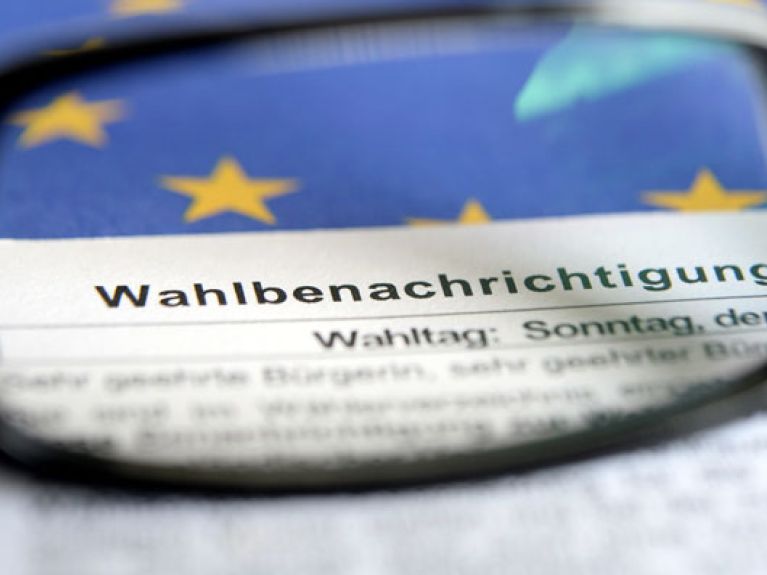Emphasis on the European election
Political parties have put up top candidates for the first time in the 2014 European Elections.

In 2014, special emphasis is being attached to the European election. It is the eighth European election and the first since the coming into force of the Lisbon Treaty. It increased the powers of the European Parliament in order to boost the democratic legitimacy of the EU. One significant innovation is that the new European Parliament will vote on the European Commission President nominated by the European Council. Previously the Commission President was appointed by the Council – in other words, by the heads of state and government. Approval of the President by the European Parliament was a purely formal matter. In 2014, however, the proposal of the European Council must take into account the result of the European election. Accordingly, the European parties have stood presidential candidates for the first time. Only the candidates of the two large parties are expected to have realistic chances of succeeding Commission President José Manuel Barroso. The Christian Democratic and Conservative European People’s Party (EPP), which is currently the party with the most votes in the European Parliament, has nominated Jean-Claude Juncker, the former Prime Minister of Luxembourg and President of the Eurogroup. The presidential candidate of the second largest party, the Party of European Socialists (PES), is Martin Schulz, the German President of the European Parliament.
European election in Germany on 25 May

